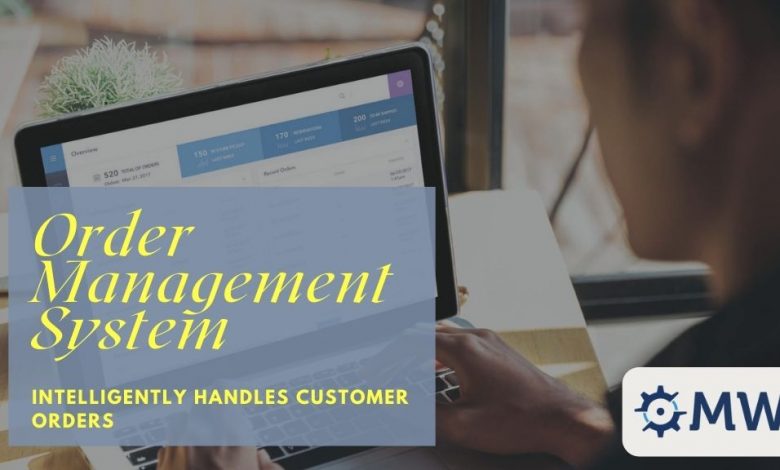
Most organizations, firms, and manufacturing companies need to manage their daily inventories, orders, and their other business-related processes. An effective Order Management System ensures automated inventory management for entering new inventories into the system through multiple selling platforms. OMS solution automates the order-to-cash process and starts activities after successful submission of order through payment method and shipment. The order management solution efficiently works for any size B2B and B2C businesses. However, an efficient inventory management system also features an order management app. It enables business owners to manage their stock in real-time to meet the needs of increasing customer demands.
Key Functionalities of Order Management Solutions
An efficient Warehouse Management Software must perform specific operations without considering the size and type of a business. MWI is one of the best OMS system providers offering more intelligent and advanced software solutions.
Order Tracking:
Monitoring and tracking orders are the key objectives of any order control solution. It makes inventory control, logistics, and other processes more efficient and productive. Order management solution has become essential for most businesses selling their products using many channels. Business owners can check orders and make necessary changes before delivering towards their final journey to reach customers.
Manage & Monitor Inventory:
The correct order handling and inventory management play an important role for any e-commerce brand. The efficient Warehouse Control System can prevent overselling, overstocking, incorrect forecasting, and many other potential issues. Order management solutions simplify the tracking of the inventory process and update inventory levels in real-time.
Accelerate Order Completion:
The efficient OMS solution records customer orders and streamlines various logistics activities. It often includes routing orders to the correct printing shipping labels, the right warehouse, and many others. However, integration with the 3PL (3rd-party logistics) system can provide faster order fulfillment with satisfaction.
Reverse Logistics Handling:
Dealing with customers and handling returned items is vital to order management solutions. The reserve logistics option of the system allows cloning an original order to rapidly create a credit. It enables managing to reorder, refund, or replacement of products depending on the returned items.
Types of Order Management Systems
Companies and organizations run various types of businesses and they need OMS according to their requirements. The most commonly used OMS types are;
- Manual OMS
- Standalone OMS
- Ecommerce Platform
- Enterprise Retail Platform
- Digital Operations Platform for Retail
Manual OMS:
Manually managing and tracking orders is more feasible for the smallest companies and organizations. The system solution can record all order information in a ledger or the form of spreadsheets. It often involves creating a complete Excel sheet to keep relevant order details together and updated.
Standalone OMS:
Most companies prefer standalone Order Management Software for more effective OMS solutions. It has become an essential part of the retail tech of the firm and works in coordination with other solutions. The standalone OMS solution features the entire basic elements of order management. It enables business owners and managers to centralize data and track order information to make the availability of customer’s purchasing.
Ecommerce Platform:
Most companies use an e-commerce platform to sell their products online. The software solution allows accepting orders from customers submitted during their visit to your website. The OMS performs entire operations efficiently in coordination with e-commerce and a Warehouse Management System. Companies don’t need 3rd party channels because all orders come from your company’s website.
Enterprise Retail Platform (ERP) Software:
Most growing companies often upgrade systems and turn the standalone system into ERP software solutions. The software solution has the ability to integrate more business activities and operations. The ERP software covers various essential areas including;
- Inventory management
- Warehousing & logistics
- Customer relationship management
- HRM & payroll
Digital Operations Platforms Tailored to Retail:
The software solution is more feasible for companies looking for efficient order management and other back-office activities. These systems contain entire features of the order management solution such as order to cash and e-commerce processes. These platforms offer a centralized database for all company data and operations.